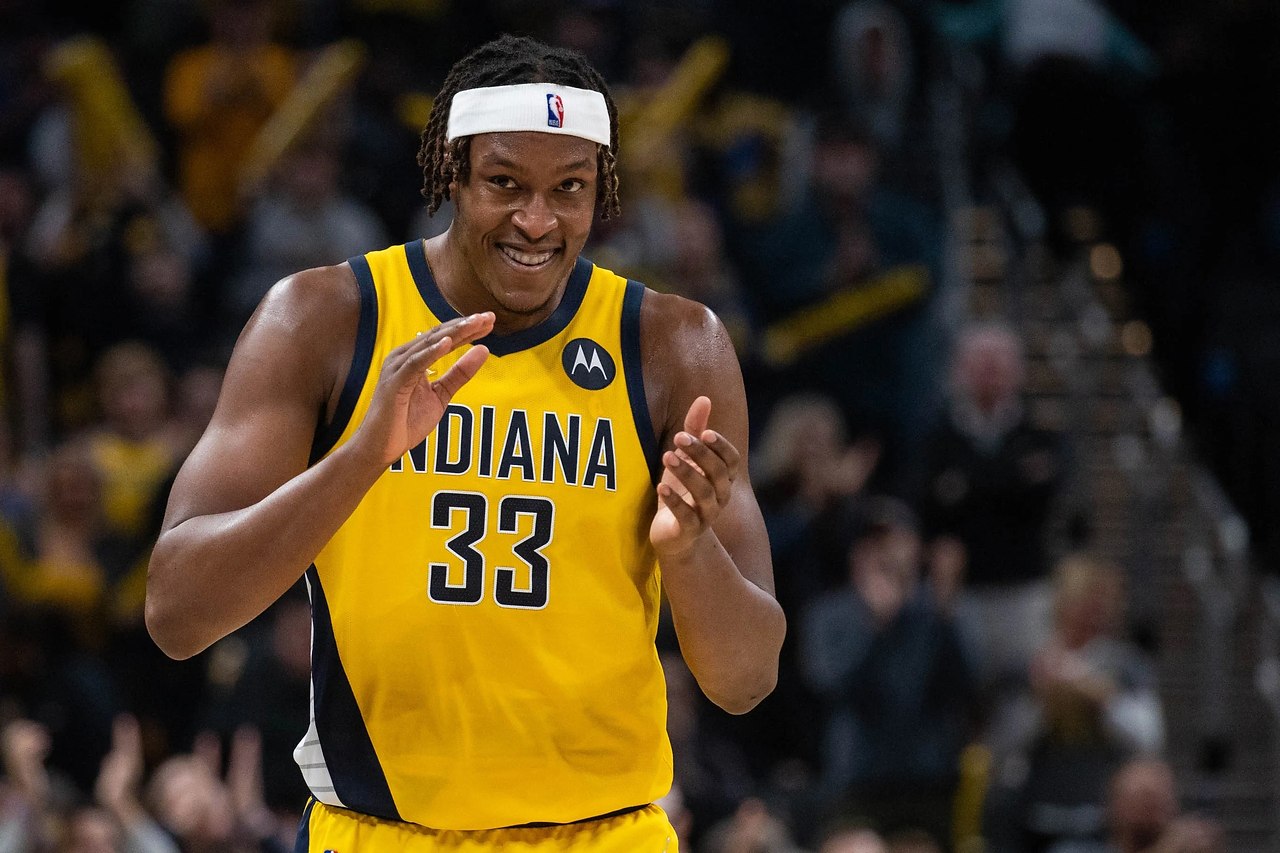It`s often said that death and taxes are life`s only certainties. Yet, for the past two decades, the Indiana Pacers have skillfully sidestepped one of these: the NBA`s luxury tax. Their last payment was in 2005. The only other teams to match this 20-year streak are the Charlotte Hornets and New Orleans Pelicans, neither of whom has consistently been a contender like the Pacers, who are currently tied 1-1 with the Thunder in the NBA Finals. This means Indiana has never faced the stricter tax penalties introduced in 2011, nor have they come anywhere near the severe rates possible under the 2023 Collective Bargaining Agreement. Historically, the Pacers have been known for their financial restraint, avoiding such high thresholds.
However, this long-standing pattern is reportedly set to change. Starting center Myles Turner is nearing free agency, and the Pacers organization is determined not to lose him without compensation. According to ESPN`s Shams Charania on Sunday, “the Pacers have determined that they will be entering the luxury tax next season for the first time in 20 years” specifically to re-sign Turner. While this is positive news for Pacers fans, it prompts further questions, primarily: how far are they willing to go into the tax, and for how many consecutive seasons?
Currently, the Pacers have approximately $17 million in cap space before hitting the tax threshold. However, re-signing Turner is projected to cost around $30 million for the next season, with potentially higher figures in subsequent years. If the Pacers commit this amount to Turner, complete their roster, and make no other significant transactions, they will not only cross into the luxury tax but will also be close to the second apron, which brings even harsher penalties.
Could they potentially save some money by shedding another player`s contract? Possibly, but who would that be? A drawback of Indiana`s strategy of relying heavily on a 10-man rotation is that it makes them more financially committed to a larger group of players. Essentially, it`s difficult for the Pacers to simply “dump” someone because nearly everyone on the roster contributes effectively. While they could potentially avoid the tax (or get close) by trading players like Obi Toppin or T.J. McConnell into another team`s mid-level exception slot, both players are crucial members of this season`s playoff roster.
The financial implications become more complex when looking further into the future. Bennedict Mathurin is eligible for an extension this offseason, a deal that would begin in the 2026-27 season. The year after that, Aaron Nesmith will be due for a new contract, and if the team successfully develops him, Jarace Walker`s extension will also be on the horizon.
This outlook isn`t meant to suggest the Pacers are heading towards financial ruin; quite the contrary. They have managed their salary cap remarkably well, almost flawlessly. Few teams have been as diligent in securing their key role players early and for extended periods. The strategic renegotiation and extension signed with Turner a few years ago was a prime example; they utilized available cap space to front-load that deal, resulting in them currently paying him less than his market value. Overall, the Pacers have handled their salary cap situation about as effectively as could be expected.
However, it`s important to remember that the Pacers have historically operated with more financial conservatism than most teams. It`s simpler to maintain fiscal discipline when there`s a strict policy against paying the luxury tax. The team is now seemingly prepared to pay it, but they are choosing to do so at a time when the rules have become significantly more punitive than ever before. This will not be a small expense; it`s likely to amount to tens of millions of dollars spread across multiple seasons.
It is entirely plausible that the Pacers organization is already making preparations for this increased financial commitment. ESPN`s Brian Windhorst mentioned earlier in the playoffs that the Pacers have brought in new investors in recent years, aware of the potential tax bill on the horizon. Zach Lowe of The Ringer has speculated that minority owner Steven Rales, should he ever take control of the team, might be considerably more inclined to incur luxury tax expenses than the longtime owner Herb Simon has been. There seems to be an internal recognition of just how costly this team could become in the near future.
But if there was ever an opportune moment for the Pacers to face substantial tax liabilities, it would be now. This isn`t just a team performing well in the NBA Finals; it`s a roster strategically built to remain competitive for years to come. Potential contenders in the Eastern Conference could be vulnerable. The majority of the Pacers` players are young, and those who have already signed new deals are on team-friendly contracts. If the Pacers execute their plans correctly, they have a significant window ahead for championship contention.
This strategic direction will inevitably require the team to absorb significant financial costs. While previous iterations of the Pacers franchise might have sought ways to cut expenses, this current team, due to its emphasis on roster depth, cannot afford to do so. Entering the luxury tax is a necessary first step, and a positive one. However, merely “dipping a toe” into the tax pool is not the true measure of commitment here. The real test will be their willingness to dive into the deep end and remain there for as long as required to maximize their championship window.

